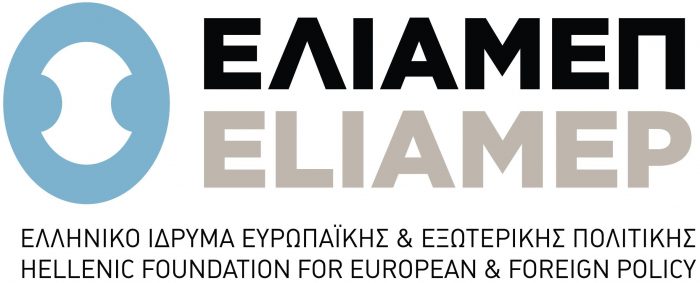Click here for the first part and the second part of the event.
The Hellenic Foundation for European & Foreign Policy (ELIAMEP) and the Anna Lindh Foundation organized an event for the presentation of: “Euromed Intercultural Trends 2010: The Anna Lindh Report – Perspectives from the Region.” The discussion was held in English on Friday 8 April 2011, at 11.30, at the International Center for Hellenic and Mediterranean Studies (DIKEMES), 5, Stadiou square (Pagkrati, near Panaithinaic stadium), 2nd floor.
The list of speakers included Dr. Filio Diamanti, (Assistant Coordinator of the Hellenic National Network for the Anna Lindh Foundation, Expert of the Euro-Mediterranean University (EMUNI), Slovenia, Associate Lecturer, Hellenic Open University), Ms. Rasha Abdulla (Associate Professor and Chair, Journalism and Mass Communication, The American University of Cairo), Mr. Richard Shotton (Coordinator of the UK network for the Anna Lindh Foundation, Associate at the Centre for Urban Education, Manchester Metropolitan University) and Mr. Gurkan Aksaer (Co- coordinator of the Turkish National Network for the Anna Lindh Foundation).
Dr. Thanos Dokos, General Director of ELIAMEP, moderated the discussion.
Mr. Andreu Claret presented the Anna Lindh Report 2010, the first global study on Values, Perceptions and Interactions in the Euro-Mediterranean Region. Denying the notion of the ‘Clash of Civilizations,’ the ALF Report anticipated the existence of some of the values which emerged during the Arab Spring (Urban Youth). The Report also denies the Western stereotype of a conservative ´Arab Street´ and anticipates the plural reality we have observed in Tahrir Square. Cultural and religious diversity is not an obstacle for dialogue but misuse of religion and cultural identities (by political and media actors) can harm dialogue. There is the potential for a common Mediterranean project (more than 70% of Arabs and Europeans associated such a project with innovation, youthfull dinamism and respect for cultural diversity).
Dr Filio Diamantis spoke on the case of Greece regarding the coverage of minorities in the media, stressing out the need for the promotion of intercultural dialogue, mutual respect, acceptance of minority and majority cultures; for financial support by the Greek state (Ministry of Culture); for more specialised Media studies departments: courses and training regarding cultural and religious diversity (issues of racism and xenophobia); for Education: inclusion of relevant themes in the school curriculum. She also emphasized that public broadcast channels should air related programmes at time zones with high visibility and a multi-lingual TV channel should be established. Last she suggested a Media monitoring and the creation of an independent Media Observatory.
Dr. Rasha Abdulla presented a paper on the case of news media and latest political developments in Egypt. Focusing on the diversity scene before and after January 25, 2011, she suggested ways for the improvement of mass media coverage in Egypt. In her view there is an urgent need for Education and media literacy; for media diversity training; for high quality public broadcasting; for media monitoring NGOs; for diversity in media content and for material on the everyday life of Arab world. According to Prof. Abdulla, life after January 25 changed regarding the role of facebook and the structure of social media as democratizing agents. There is also a link to traditional media and their role has changed after the revolution. Last, there is diversity within the country after Mubarak.
Mr. Shotton Richard compared public participation in the UK vis-à-vis Egypt and other countries of the Mediterranean region. In his view the British media present a negative image of the Arab world and there is a mutual interaction in politics. Moreover he expressed his concern about the ongoing limited interest and participation of the British public about political life.
Mr. Gurkan Aksaer laconically highlighted the importance of the Anna Lindh project in Turkey with regard to the establishment of three research programmes in this process.



